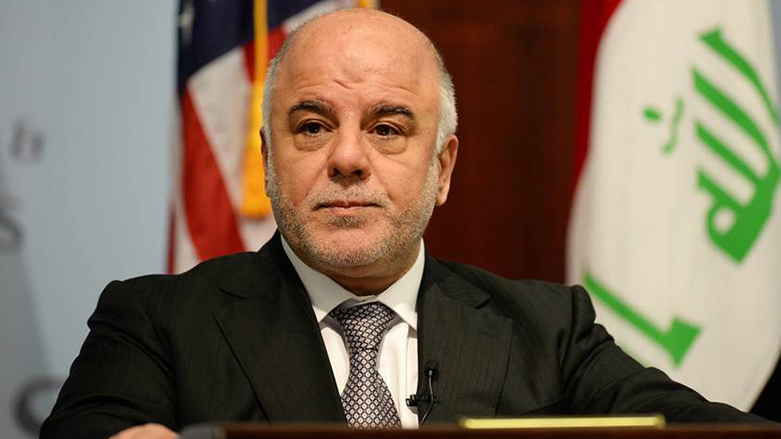Abadi still seeking to undermine Kurds

WASHINGTON DC, United States (Kurdistan 24) – On Thursday, Iraqi Prime Minister Haider al-Abadi met with representatives of three Kurdish parties, but an informed Kurdish source dismissed the meeting as merely a continuation of Abadi’s ongoing efforts to undermine the Kurdistan Region.
For the first time since the Sep. 25 referendum on Kurdish independence, Abadi met with Kurdish political figures. However, they were from three opposition parties: Change (Gorran), the Islamic Group (Komal), and the Coalition for Democracy and Justice (CDJ)—rather than the Kurdistan Regional Government (KRG).
Abadi “wants to show that the Kurds are not united,” this Kurdish source suggested, and he is acting “under direction from Iran.”
State Department Spokesperson Heather Nauert, however, hailed the meeting, affirming that it showed that Baghdad and Erbil were capable of negotiating on their own and did “not need the US Government to help them hold hands.”
“We’re happy to see that those conversations are really starting to take place,” she said.
Kurdistan 24 responded by suggesting that Abadi was trying to play divide-and-rule among the Kurdish parties and asked, “What would you think if [Russian President] Vladimir Putin invited the Democrats [i.e., the opposition] to go to Moscow and talk about important issues?”
Nauert found the question “entertaining,” but dismissed it as “hypothetical.”
The informed Kurdish source contrasted the US position with that of France, where, on Thursday, President Emmanuel Macron, in an address to his country’s diplomatic corps, called on the Iraqi government, along with the KRG,” to begin a serious and comprehensive dialogue to reach a political solution to the problems between the two sides.”
Macron also called on Baghdad to begin “the gradual” dismantling of the Popular Mobilization Forces (PMF)—the militias known in Iraq as Hashd al-Shaabi — the most powerful of which are supplied, trained, and directed by Iran.
The US has not made any similar public appeal—even as PMF leaders increasingly call for the US to leave the country now that the Iraqi government declared that the Islamic State (IS) had been defeated there.
This Kurdish source suggested that France has a better, clearer, and more long-term strategy than the US does, in part because it is more directly affected by developments in the region.
Europe’s migration crisis, triggered by the Syrian civil war and the rise of IS, has had a major impact on France, as has the related threat of terrorism. It was only two years ago that IS terrorists attacked Paris, killing 130 people and wounding hundreds more.
However, it has been many years since the US was hit by a major terrorist attack, while it is little affected by the migration crisis.
Significant figures, including former CIA Director Gen. Michael Hayden, have warned that unless the Trump administration does more to address the outstanding political issues in post-IS Iraq and Syria, a similar terrorist organization is likely to emerge in “three or four or five years.”
Editing by Nadia Riva
